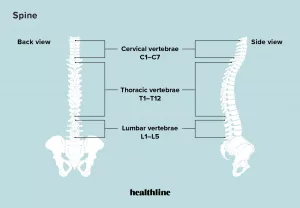You ever find yourself lying awake at night, your back or neck throbbing, and you’re just… stuck? Worrying if you’ll need surgery? Or maybe Googling: “spine surgeon vs neurosurgeon”—what’s actually the difference? Yeah, join the club. This isn’t just confusing for patients—it trips up a lot of people, even doctors’ relatives! And honestly, making the right choice can be the difference between a speedy recovery and endless frustration.
We’re here to unravel all of this for you. It’s about more than just fancy medical titles—it’s about your quality of life, your health, and your confidence in making such a major decision. Grab a cup of coffee, settle in, and let’s break it down together—like friends.
So… What Really Is a Spine Surgeon?
I know what you’re thinking—”aren’t all spine doctors kind of the same?” It definitely feels that way when you’re sitting in the waiting room, staring at pamphlets with complicated diagrams and smiling doctors. But nope, spine surgeons aren’t all cut from the same cloth.
Technically, spine surgeons can come from two main backgrounds: orthopedic surgery (think bones, joints, muscles) or neurosurgery (specialists in nerves and the brain). Both can become experts in spine surgery. And, yeah, you might’ve heard people say “spine doctors are called” orthopedists or neurosurgeons—they’re both right, but with a twist. Orthopedic spine surgeons usually start with training in bones and joints, then zero in on spines. Neurosurgeons, on the other hand, train on the brain and the nervous system, and later, some focus primarily on the spine.
Who Actually Gets to Be a Spine Surgeon?
If you’re practically married to your couch because of back pain, understanding your doctor’s credentials suddenly matters a whole lot more. Becoming a spine surgeon isn’t a walk in the park—it often means over a decade of schooling, grueling residencies, and then fellowships just in the spine. At the end, these docs are fluent in fixing everything from slipped discs to major spine deformities.
What Do Spine Surgeons Actually Do?
Ever heard the phrase “spine surgeons are called upon for everything from herniated discs to tumors and collapsed vertebrae”? It’s true.
- Surgical stuff: They do minimally invasive disk repairs, fuse bones together, fix scoliosis, and sometimes tackle tumors.
- Non-surgical stuff: Here’s the kicker—they don’t always recommend surgery! Most spine issues can be managed with therapy, medications, or just a good old-fashioned heating pad (no joke).
For example, picture this: A construction worker in her 40s, strong as an ox, suddenly can’t feel her toes. She sees an orthopedic spine specialist who finds a herniated disc. Sometimes, just removing the troublesome disc gives her back her life (I’ve seen it, and wow, the tears of relief…).
When Should You Even Consider Seeing a Spine Surgeon?
Short answer? When pain doesn’t quit, when it spreads (especially to arms or legs), or when you start losing basic function (think: numbness, weakness, no control). These are your body’s red flags. Yes, there’s sometimes overlap with hip problems—I’ll get to that soon!
Stories from the Real World
A buddy of mine, Mike, tweaked his back lifting his kid. Three weeks in, still hurting, he finally gave in and booked a spine doc. Turns out, it wasn’t just a “pulled muscle”—it was a disc pressing on a nerve. One quick injection (no surgery!), and Mike was back grilling burgers that weekend. True story, and it’s more common than you’d think.
Wait, “Spine Doctors are Called…” What Again?
Quick recap because it is confusing: spine doctors can be orthopedic spine surgeons, neurosurgeons (if they focus on the spine), or sometimes physical medicine/rehab docs. The important thing? They have special training in treating tricky spine stuff—not just backs in general.
The World of Neurosurgeons: Not Just Brain Surgeons
When people hear “neurosurgeon,” they usually picture brain surgery, right? Blood, scalpels, nail-biting drama. But here’s the plot twist: most neurosurgeons spend a ton of their time on the spine.
What Does a Neurosurgeon Really Do?
These are the ultimate nerve experts. They start medical school, do a super-long neurosurgery residency (seven years is typical!), and along the way, they treat everything from brain tumors to spinal cord injuries. Some go even deeper and do special training (a fellowship) in spine—so when you see “spine surgeon vs neurosurgeon,” often you’re comparing two docs with overlapping skills, but different perspectives.
What Spine Conditions Do Neurosurgeons Treat?
Here’s where it gets interesting. Neurosurgeons are often called in for:
- Complex spinal cord tumors
- Pinched nerves that threaten nerve or bladder control
- Spinal trauma or fractures, especially when there’s risk to nerves
In plain English: they’re your go-to if your nerves are in real trouble, or if the problem is especially close to the spinal cord itself.
How Are Neurosurgeons Different From Other Doctors?
Think of them as the nerve system’s ultimate problem-solvers. They see the spine less as a stack of bones and more as a highway for nerves. This means their surgical techniques might be a little different, favoring methods that protect nerves above all else.
Want to know what a visit’s like?
It’s not just a five-minute chat. You’ll get a deep dive: neurological testing, imaging, honest talk about risks, the works. And yes, they want you to ask questions (so bring a list!).
Real-Life Reason You Might See a Neurosurgeon
I once knew a teacher who started tripping over her own feet—just a little at first, then full-on stumbles. She thought she was just clumsy. But it turned out to be a spinal cord tumor. Her neurosurgeon spotted it immediately on the MRI. The surgery took hours, but she walked out of the hospital just days later. Stuff like this happens, and timely diagnosis matters a ton.
Spine Surgeon vs Neurosurgeon: Here’s the Real Story
Let’s cut through the medical mumbo-jumbo. Is one “better” than the other? Not really—it’s about what you need.
| Aspect | Orthopedic Spine Surgeon | Neurosurgeon (Spine Focused) |
|---|---|---|
| Core Training | Musculoskeletal system, bones & joints | CNS (brain & nerves), surgical nerve repair |
| Common Procedures | Fusion, scoliosis, trauma repairs | Spinal cord tumors, pinched nerves near spinal cord |
| Perspective | Bone & mechanical alignment | Nerve preservation |
| Training Path Length | 5 yrs residency + spine fellowship | 7 yrs residency + (opt) spine fellowship |
So, when does it matter?
- If you have a straightforward disc issue, scoliosis surgery, or need a fusion, either specialist is usually great (just check their credentials!).
- For tumors, complex nerve issues, or anything close to the spinal cord: neurosurgeon time.
What’s key is the experience: a neurosurgeon who does all spine, or an orthopedic surgeon dedicated to it. Expertise > degree. And it’s always okay to ask how many procedures like yours they’ve done before!
Still worried? Don’t be shy about seeking a second opinion. According to a study, second opinions lead to better decisions and peace of mind—so advocate for yourself.
Risks and Benefits: How Do You Decide?
This is the scary part for a lot of folks. Every surgery—no matter how routine—comes with some risks: infections, failed hardware, nerve damage. But you know what? The right surgeon for your situation will sit down and break it all down honestly, talk through the data, and make sure you’re absolutely comfortable before anything happens.
Digging Deeper: What Experts Say
Spine surgery’s come a long way. Modern data show that both orthopedic spine surgeons and neurosurgeons have similar outcomes for common conditions (according to clinical review), but what really matters is skill and communication. If your doctor listens and answers your questions, that’s a good sign.
What Doctor Should I See for Hip Pain?
Surprise! Not everything that hurts in your hip is actually coming from your hip. The body’s a tricky maze—sometimes, a pinched nerve in your spine will send pain zinging into your hip, groin, or even down your leg. “What doctor should I see for hip pain?” is a question that can end up with some surprising answers.
Spine Specialist vs. Hip Specialist: Here’s a Quick Guide
- If your hip pain gets worse when you walk, sit, or bend your back, or if you have numbness, tingling, or weakness in your leg—it may be a spine issue. That’s when a spine doc (orthopedic spine surgeon or neurosurgeon) gets involved.
- If your pain is right in the joint, doesn’t shoot down your leg, and gets worse with twisting or weight bearing—think hip orthopedist first.
Frankly, don’t be surprised if one specialist refers you to the other. That just means they’re thorough—and care about getting you the right answer.
Getting an Accurate Diagnosis
Seeing the right doctor can save you months of trial and error. Usually, the process involves a physical exam, maybe some X-rays or an MRI, and a talk about your daily habits. If they need to, they’ll bring in other pros—a physical therapist, a neurologist, or even a pain management specialist.
Choosing the Right Specialist—So You Don’t Lose Time
Don’t be shy—ask questions! I’ve seen folks waste six months getting bounced around because their back pain was mistaken for hip arthritis (or the other way around). The best pros love it when you ask stuff like:
- What’s causing my pain—can you show me the scan?
- Have you seen patients with my issue before?
- Are there nonsurgical options for me?
Case Study: When a “Hip Problem” Was Actually a Spine Fix
I’ll never forget a friend’s dad, who limped for months, convinced he needed a hip replacement. Then, during an MRI, the “real” problem popped up—a pinched nerve in his lower back. One targeted surgery (by a spine surgeon, no less), and he ditched his cane for good. It’s these odd cases that show why talking to the right specialist makes all the difference.
Making the Best Health Decision—For You
Feeling overwhelmed? Trust me, everyone does at some point. But you have more control than you think. Here’s how you can take charge:
Questions to Ask Your Doctor—Don’t Hold Back
- How often do you do surgeries like mine?
- What are the odds I’ll feel better—honestly?
- What are my non-surgical options?
- Is there anyone else I should talk to before deciding?
What Makes a Great Surgeon or Specialist?
Look for board certification, experience with your specific condition, hospital reputation, and—most of all—openness to second opinions. Good doctors aren’t threatened by comparison; they know it’s about your comfort and best outcome.
Scared About Surgery? You’re Not Alone
Here’s the truth: It’s totally normal to be anxious about surgery. If you’re struggling with fear, ask about everything—risks, alternatives, recovery. And lean on your circle. A strong support system (friends, family, patient groups) helps more than you’d think. There are even telemedicine options now for second or third opinions, if you want more reassurance without leaving home.
A Personal Note on Second Opinions
One of the smartest, bravest things you can do is ask for another expert’s input. Sometimes you’ll hear the same thing and feel totally reassured. Sometimes you’ll find there’s another approach out there. Either way, you’re the customer, and you deserve to feel 100% certain about your care plan.
Wrapping It Up: You’ve Got This
If you remember nothing else from all my rambling here, remember this: you don’t have to become a medical expert overnight to find the right help. Whether you end up seeing a spine surgeon or a neurosurgeon (or both), what matters most is their experience, their willingness to work with you, and their honesty about what’s right for your case. Don’t settle for vague advice or confusing jargon. Ask questions, keep pushing for real answers, and trust your gut—you’re the only one who knows what your body feels like day to day.
Got your own story about navigating this whole world of spine surgeons or neurosurgeons? Or, are you still feeling lost? Drop a comment, share your experiences, or just ask your burning questions—I love hearing from real people (and you really never know whose story will help someone else get their life back).

























Leave a Reply
You must be logged in to post a comment.